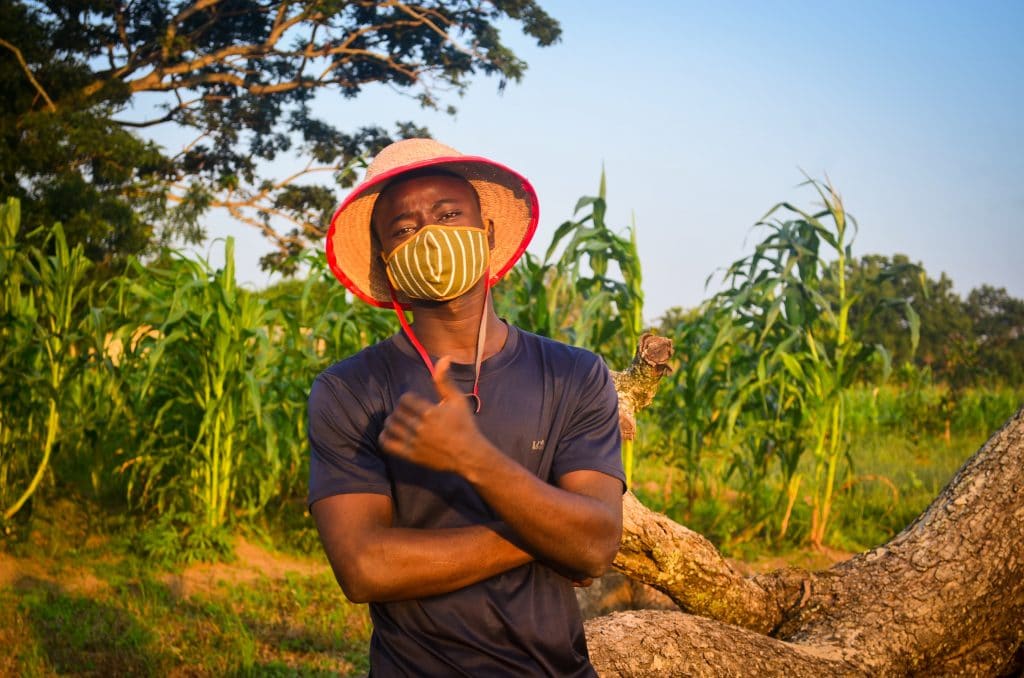Simon Roberts, University of Johannesburg and Jason Bell, University of Johannesburg
The COVID-19 pandemic and consequent lockdown measures have had a huge negative impact on producers and consumers. Food production has been disrupted, and incomes have been lost. But a far more devastating welfare consequence of the pandemic could be reduced access to food.
A potential rise in food insecurity is a key policy point for many countries. The World Economic Forum has stated this pandemic is set to “radically exacerbate food insecurity in Africa”. This, and other supplier shocks, such as locust swarms in East Africa, have made many African economies more dependent on externally sourced food.
As the pandemic continues to spread, the continued functioning of regional and national food supply chains is vital to avoid a food security crisis in countries dependent on agriculture. This is true in terms of both nutrition and livelihoods. Many countries in Southern and East African economies are in this situation.
The integration of regional economies is one vehicle for alleviating pervasive food security issues. But regional integration can’t be achieved without the appropriate support for investment in production, infrastructure and capabilities.
And, crucially, there must be more accurate and timely information about food markets. Data on food prices are crucial for political and economic stability. Yet they are not easily accessible.
A study by the Centre for Competition, Regulation and Economic Development highlights how poor and inconsistent pricing data severely affects the quality of any assessment of agricultural markets in the Southern and East African region.
What’s missing
There have been attempts to collate and disseminate agricultural prices internationally. National commodity exchanges have also been created in some countries to facilitate wholesale agricultural trade and the collection of market and price information in Africa. These include the Regional Agricultural Trade Intelligence Network, the Food and Agricultural Organization’s Corporate Statistical Database and the World Food Programme’s Vulnerability Analysis and Mapping database.
But the overall effectiveness of commodity exchanges has been limited in countries in Southern and East Africa. With some exceptions, they have not been widely used, meaning that small producers have not had good access to reliable pricing information.
The patchy data that is available at the producer level indicates very large price differentials across Southern and East Africa. These differentials are far in excess of reasonable transport and related costs. They speak to the lack of integration of markets. They also point to the potential that local market power is being exploited. An example would be the power of large buyers over small producers who face high transport costs to individually transport goods to faraway markets.
Having up-to-date information on food prices – along with other market information relating to production and market structures – is necessary to understand agricultural food systems in the region. This is crucial to track events ranging from the effects of this pandemic to the weather as well as locust swarms.
Without close to realtime data, it is not possible to rapidly plan appropriate responses.
In addition, the lack of readily available market data restricts our understanding of the impact of changing supply and demand conditions in local markets, and regional value chains more broadly. The climate crisis – and other supply shocks like the pandemic – imply much greater volatility in production and food prices. The effects will become ever more dire for farmers, vulnerable consumers and downstream industries.
Hit the reset button
Máximo Torero, chief economist of the Food and Agriculture Organization, has observed that this pandemic is an opportunity to hit the reset button on policies to alleviate food security problems. It has emphasised the fragility of overdependence on a globalised agricultural system. What is needed to achieve a more integrated and regionalised agricultural system is coordinated public policy responses to support agribusiness. These responses must also ensure small and medium-sized farmers are included.
The World Bank is working closely with many governments to track domestic food and agricultural supply chains. The goal is to ensure that food systems continue to function despite the challenges wrought by COVID-19. In addition, the Food and Agriculture Organization has mapped a way to potentially avoid a looming food crisis in Africa. These short-term measures are welcomed.
Action can be taken at a regional level too. For example, an effective market observatory would assist in the promulgation of wider, deeper and more competitive agricultural markets. Market observatories help market participants in reading market signals while also reducing market volatility.
Examples of these can be found throughout the European Union covering a range of agricultural products. Developing this capability would also contribute to identifying key trends in the region in close to realtime. And it would help identify issues relating to market access, border and transport-related problems, and possible anticompetitive behaviour.
In the medium to long term, greater attention is needed on ensuring appropriate market shaping measures for more resilient and integrated regional agricultural systems in the Southern and East African region. Such measures depend on having accurate and timely information on market participants, food production and prices.
Simon Roberts, Professor of Economics and Lead Researcher, Centre for Competition, Regulation and Economic Development, UJ, University of Johannesburg and Jason Bell, Researcher at the Centre for Competition Regulation and Economic Development, University of Johannesburg
This article is republished from The Conversation under a Creative Commons license. Read the original article.
Main Photo by Abubakar Balogun on Unsplash
Charles Telfair Centre is an independent nonpartisan not for profit organisation and does not take specific positions. All views, positions, and conclusions expressed in our publications are solely those of the author(s).
